Physical Address
304 North Cardinal St.
Dorchester Center, MA 02124
Physical Address
304 North Cardinal St.
Dorchester Center, MA 02124
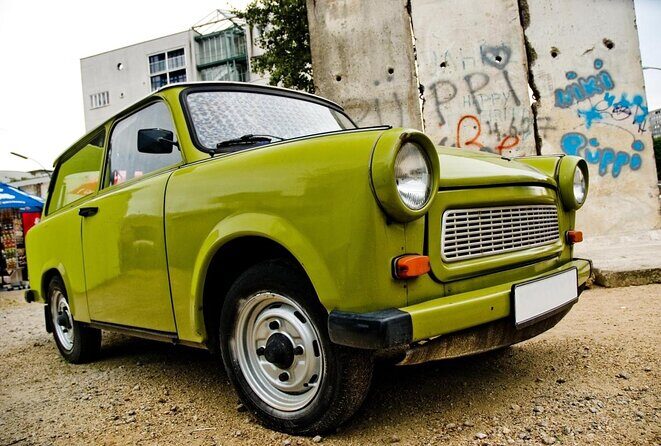
Explore East Germany's history with this interactive DDR Museum Berlin admission ticket—engaging displays, authentic recreations, and insightful exhibits.
Stepping into the DDR Museum in Berlin offers a hands-on journey through the lives of East Germans during the Cold War era. This experience combines interactive exhibits, reconstructed living spaces, and authentic memorabilia to bring history vividly to life. Whether you’re a history buff or just curious about life behind the Iron Curtain, this museum promises a compelling glimpse into a turbulent period of German history.
What really makes this tour stand out is its interactive approach—you don’t just look at displays; you experience them. From sitting inside a Trabant to undergoing a simulated Stasi interrogation, it’s a learning experience that’s as engaging as it is educational. On the flip side, some visitors might find the museum a bit small and crowded, which can detract from the experience, especially during peak times.
This tour works best for those who appreciate authentic, immersive history and don’t mind tight spaces or busy environments. It’s especially suited for families, history enthusiasts, or anyone wanting a vivid, tangible understanding of East Germany’s socialist past. Now, let’s dive into what makes the DDR Museum a memorable addition to your Berlin itinerary.
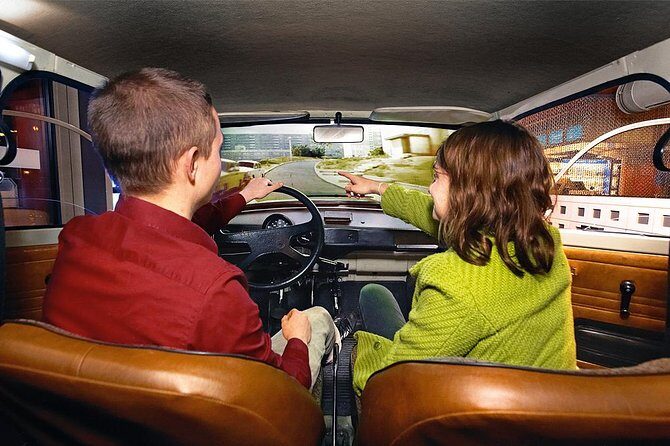
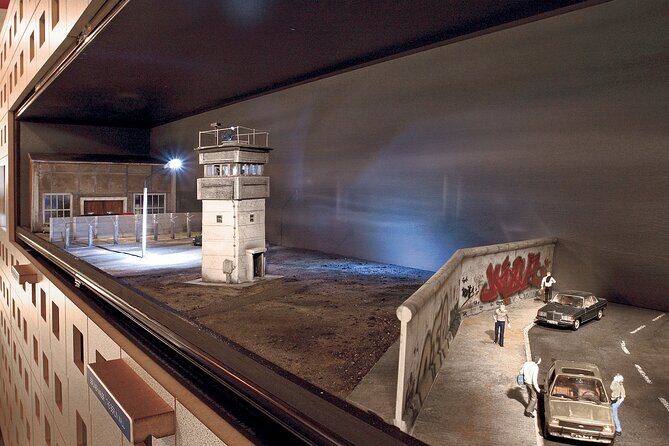
The DDR Museum is located directly across from Berlin Cathedral at Karl-Liebknecht-Str.1, making it a convenient stop in central Berlin. The museum’s opening hours are generous, running daily from 9:00 AM to 9:00 PM, giving you plenty of flexibility to plan your visit. With a mobile ticket that allows you to choose your preferred date and time slot, you can avoid long lines and manage your schedule comfortably.
Culture seekers can explore more Berlin museums and galleries
Upon entering the museum with your pre-booked ticket, you’re immediately transported into the world of East Germany. The first thing that catches your eye is the detailed replica of an East German apartment—complete with period furniture, household items, and propaganda playing on a vintage TV. Several reviewers appreciated this part, noting how “the kitchen recreation shows how many had to live in a small space assigned by the government,” offering a tangible insight into daily life.
One of the major highlights is the ability to sit inside a Trabant, the iconic and now-revered East German car. This simple act offers a small but powerful connection to the past, especially for car lovers or those curious about the GDR’s transportation. Visitors can also explore typical household goods, school rooms, and shopping experiences, giving a comprehensive picture of East German routines.
The museum doesn’t shy away from the more oppressive aspects of East Germany’s socialist regime. You can undergo a staged Stasi interrogation, which many visitors found both eye-opening and slightly unsettling. The exhibits also include detailed explanations of the Socialist Unity Party’s influence, with videos and photographs that provide context to the political environment.
You might also be interested in these Berlin experiences
Multiple reviews mention the museum’s small size—about enough to fill an hour or two comfortably. Some found it “quite small,” with a few describing it as “not much else to say” after the core exhibits. During peak hours, it can get very crowded, making it difficult to see everything comfortably, and some visitors mentioned that the tight spaces can feel overwhelming.
The ticket price — around $15.48 — is reasonable considering the level of interaction and authenticity you gain. Many reviewers felt it was good value for money, especially since the exhibits are in English and well-curated. The museum is open year-round and is accessible by public transportation, making it easy to fit into your Berlin sightseeing plans.

Let’s unpack the itinerary a bit more. Your visit starts with the reconstructed East German apartment, which is surprisingly detailed. As one reviewer noted, “It’s a small museum, but provides an interesting insight,” and the interior’s authenticity helps you understand the cramped, utilitarian lifestyle many East Germans endured. The attention to detail, from period furniture to propaganda TV broadcasts, adds realism.
Next, the Trabant car is an instant crowd favorite. Sitting inside one makes visitors feel like they’re stepping back into the 1980s, and the experience is surprisingly visceral. The replica of a typical GDR household includes kitchen setups, bedroom spaces, and shops, all designed to show everyday routines. One visitor explained that the exhibits “show different parts of life: home, school, working, shopping, transportation,” giving a layered view of East German society.
The Stasi interrogation simulation is impactful. It’s not overly graphic but does give a sense of the fear and control the regime exerted. Several reviews mention this as one of the most memorable parts, with one describing it as “eye-opening and slightly unsettling,” emphasizing the importance of understanding the regime’s surveillance tactics.
On the educational side, the exhibits about the Socialist Unity Party and the rise and fall of the GDR are supported by videos and texts. Visitors learn about the political climate, the Berlin Wall’s symbolic significance, and the eventual reunification.
Many reviews highlight the interactive nature of the museum as a major plus. “Many exhibits are hands-on,” one reviewer said, “making it very engaging.” Others appreciated the fact that the museum offers good English translations, making it accessible to international visitors.
Some, however, found the space to be crowded and hot—especially during summer or peak hours—making it difficult for some to fully enjoy the exhibits. A visitor pointed out the lack of air conditioning, which could be uncomfortable in warmer weather.
Considering the price, the small size might seem like a downside, but in reality, it packs a lot of meaningful content into a compact space. The interactive elements and authentic recreations make this tour a worthwhile investment, especially for those who want a tactile understanding of East Germany’s social and political landscape.
This experience is perfect for history enthusiasts who want more than just a textbook overview. The interactive exhibits are ideal for families or anyone who learns better through participation. If you’re looking for a quick, engaging stop in Berlin that offers both education and entertainment, this museum hits the mark.
However, if you prefer sprawling museums or dislike crowds, it might be worth visiting during less busy hours or choosing a quieter day. The small size means it can get cramped, especially when busy, so patience and an open mind are helpful.
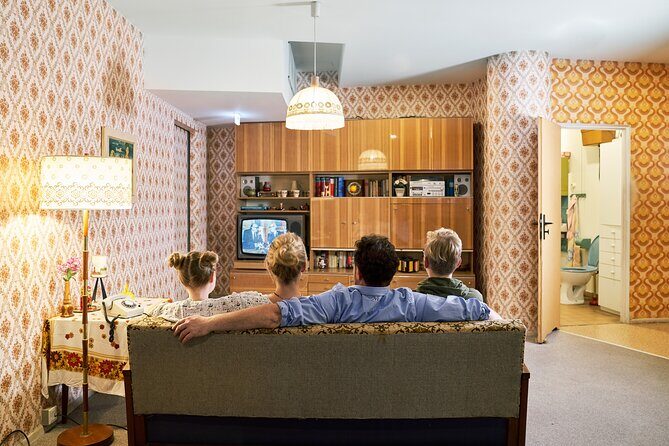
The DDR Museum Berlin is a unique, hands-on window into life in East Germany. Its focus on interactivity, authenticity, and storytelling makes it stand out among Berlin’s many museums. Though it’s compact, the depth of information and immersive recreations make it a valuable stop for anyone interested in history—whether your obsession is Cold War politics or vintage cars.
The ticket price strikes a good balance between cost and experience, especially given the quality of exhibits and the opportunity to learn through doing. While crowds can be an issue, visiting during off-peak hours or on a weekday might help you enjoy the exhibits more comfortably.
This museum is best suited for travelers seeking an engaging, educational, and memorable look at East Germany’s past. It offers enough to fascinate history buffs and casual visitors alike, making it a worthwhile addition to any Berlin itinerary.
“It's quite a small museum, but provides an interesting insight into GDR history. There's lots of information in English throughout the exhibits.”
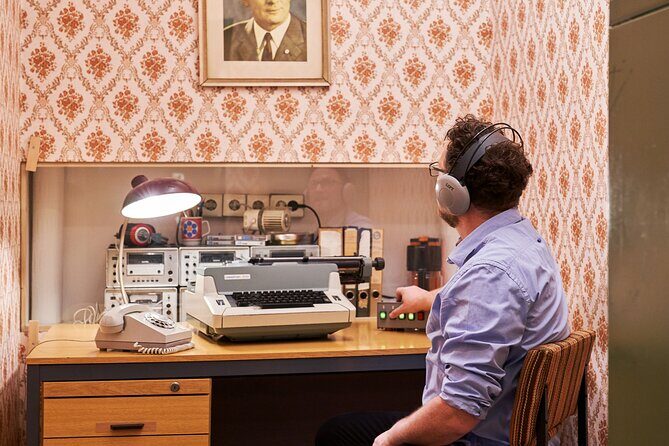
Is the DDR Museum suitable for children?
Yes, the interactive nature makes it engaging for kids, especially the opportunity to sit inside a Trabant or experience the interrogation simulation, though parents should supervise crowded conditions.
How long does a typical visit take?
Most visitors spend about 1 to 2 hours exploring the exhibits, though some mentioned they could spend longer if not crowded.
Can I buy tickets at the door?
While you can purchase tickets onsite, it’s recommended to book in advance online to guarantee your preferred date and time and avoid last-minute queues.
Is the museum accessible for people with mobility issues?
The museum is near public transportation, but no specific accessibility details are provided. It’s best to contact the museum directly if you have special needs.
What is the cost of the ticket?
The admission ticket is roughly $15.48 per person, offering good value considering the immersive nature of the experience.
Are there guided tours available?
The reviews suggest a self-guided experience; no mention of guided tours is made, but the exhibits are well-explained and multi-lingual.
What are the opening hours?
The museum is open from 9:00 AM to 9:00 PM daily, giving flexibility for different schedules.
Is there food or a café inside?
Food and drinks are not included or available within the museum, so plan to eat before or after your visit.
The DDR Museum in Berlin provides an accessible, engaging way to understand a complex period of history through hands-on exhibits and authentic recreations. Whether you’re a history geek or just curious about life behind the Iron Curtain, it offers a memorable peek into East Germany’s past.